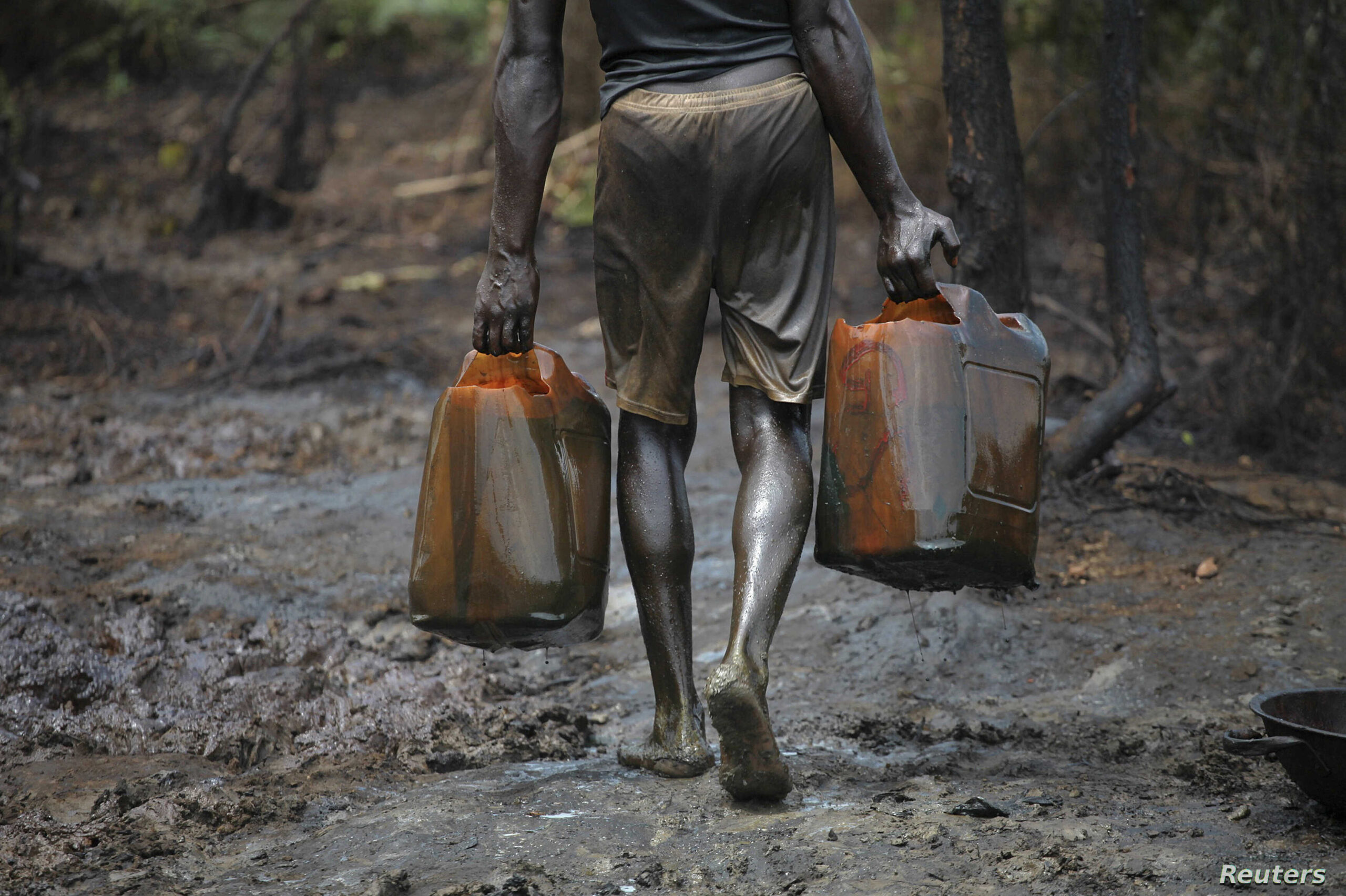Nigerian National Petroleum Company (NNPC) says the nation lost crude oil worth N556bn in three months.
Gatekeepers News reports that NNPC says the country lost crude oil worth N556bn between August and October 2021 due to pipeline vandalism, community interferences, sabotage of oil facilities, among others.
This was disclosed in the latest industry data obtained from the NNPC.
In the data compiled from the Crude Oil Marketing Division report of events that affected oil production in August, September, and October 2021, NNPC indicated that the country consistently posted losses during the period under review.
According to data from a global statistical firm, Statistica, in August, September, and October 2021, the average costs of a barrel of Brent, the crude against which Nigeria’s oil is priced, were $70.75, $74.49, and $83.54 respectively.
The NNPC report stated that the crude oil volumes lost due to various production shut-ins caused by vandalism, sabotage, and other challenges in August, September and October were 6,680,620 barrels; 6,362,700 barrels; and 4,824,946 barrels respectively.
At the official exchange rate of N411.95 to the dollar, the worth of the crude volumes lost by the country in August, September, and October were N194.71bn, N195.246bn, and N166.05bn respectively.
This means that the value of crude oil that was lost by the country during the three-month period was about N556bn.
This report surfaced at a time when Nigeria’s debts had been increasing, with the Federal Government of Nigeria sourcing for funds by borrowing several billions of dollars.
Also, humongous sums had been spent by the government in its bid to service the country’s debts and so much have also been budgeted for debt servicing in the coming year.
Recently, data from the Debt Management Office revealed that Nigeria spent N2.49tn on debt-servicing payments in the first nine months of this year.
Further analysis of the report from the NNPC showed that 20 incidents led to the loss of the 6,680,620 barrels of crude oil recorded in August this year due to various production shut-ins.
According to the report, eight crude oil terminals including Forcados, Sea Eagle, Brass, Yoho, Qua Iboe, Escravos, Ajapa, and Otakikpo were affected in August, as production was curtailed at the facilities during the period.
The NNPC, while explaining some of the incidents that curtailed production in one of the terminals, said, “Energia (an oil firm) injection into Brass line (was) suspended due to pipeline damage.
“Pillar injection into Brass (was) suspended due to third party interferences on NAOC (Nigeria A grip Oil Company) Akiri pipeline.”
In September, it was observed that 18 incidents warranted the loss of 6,362,700 barrels of crude oil, following production shut-ins recorded in the reviewed month.
A total of nine terminals including Forcados, Sea Eagle, Brass, Yoho, Qua Iboe, Escravos, Urha, Ajapa, and Otakikpowere affected in September.
On some of the incidents that led to the crude oil losses in September, the NNPC stated that “production (was) curtailed due to pipeline outages” at the Forcados Terminal, adding that “Energia injection into Brass line (was) suspended from September 1 to 30, 2021 due to pipeline damage.”
Findings from the NNPC reports of events that affected production in October 2021, however, showed that the incidents that led to crude oil production shut-ins, reduced to 11 during the month.
Eight terminals including include Forcados, Bonny, Odudu, Brass, Yoho, Urha, Ajapa, and Aje were affected as the total loss recorded in October was 4,824,946 barrels of crude oil, which was the lowest among the figures posted during the three-month period.
The Minister of State for Petroleum Resources, Chief Timipre Sylva, and the NNPC had repeatedly stated that the government was interfacing with communities in the oil region on why it was necessary to halt acts that often resulted in crude oil losses.
In one of its most recently published monthly reports. the corporation said, “The NNPC in collaboration with the local communities and other stakeholders continuously strive to reduce and eventually eliminate this menace.”





